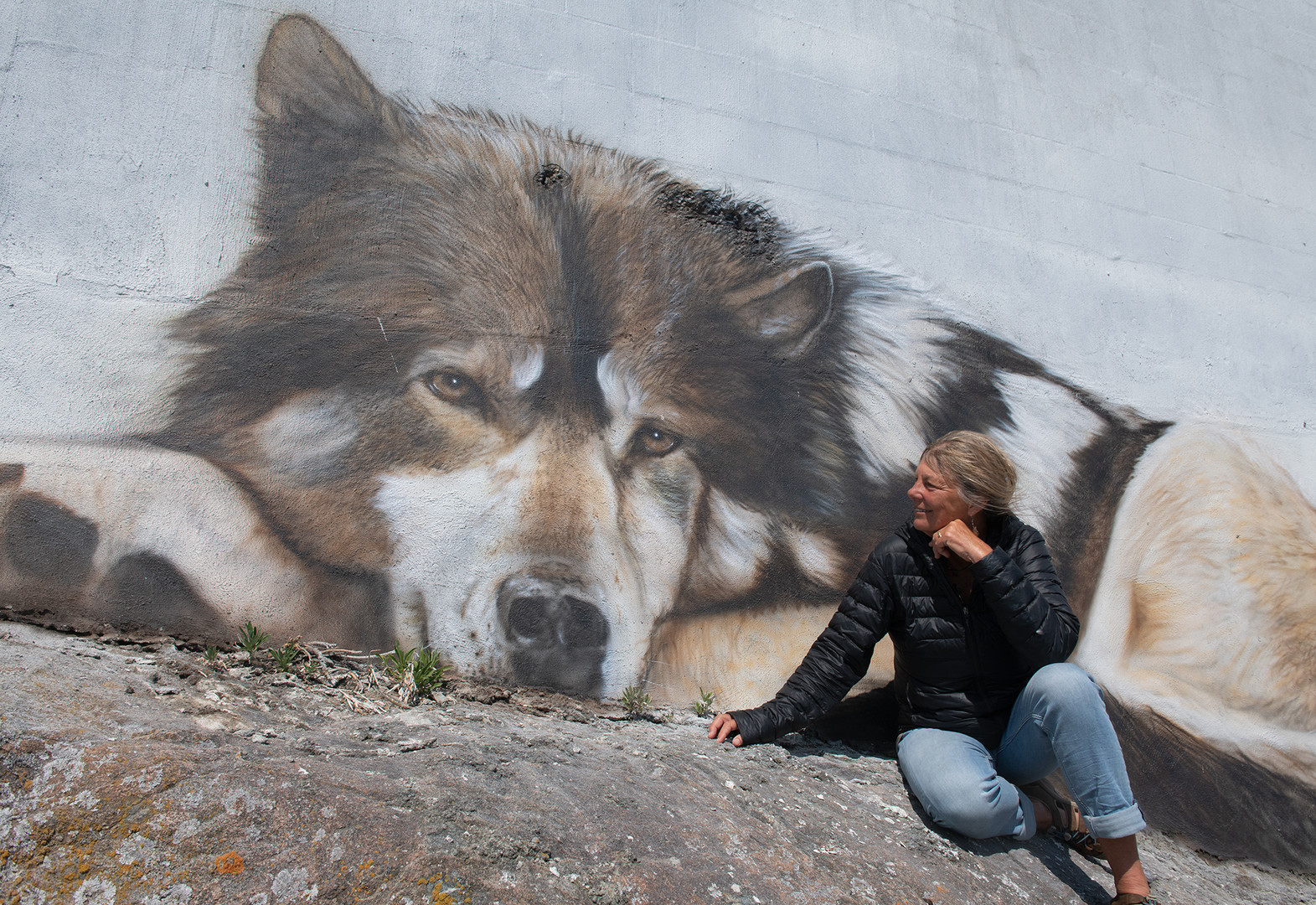Part of the Pack
(Canada, 82 min.)
Dir. Isabell Groc & Mike McKinlay
I often say that I don’t like dogs, but I will say that I do love wolves. Domesticated dogs were obviously born from their wolf cousins and selectively bred to create a sub-species of pets that are docile, obedient, and human-friendly. I’ve always thought of wolves as the sharks of the land since they roam for meals, sleekly blend into their environments, and hunt either alone or in packs as their mood or opportunity suits them.
Sharing almost 99% of the same DNA, wolves and dogs can mate, even if their offspring is (often) infertile. The resulting hybrid can either lean towards the common domesticated pet, or maintain many traits of their wild origins. Either way, it’s truly a challenge to contain such an animal, but the lure for some owners to have a creature that’s so close to the wild animal is too enticing to avoid.
On a surface level, Isabelle Groc and Mike McKinlay’s “dogumentary” examines three owners of wolf-dog hybrids. They show off the obvious charisma of their animal companions and, on first blush, make everything seem perfectly in keeping with average pet owners. It’s only as the film unfolds that it unravels the more challenging aspects of behaviour of these wolf-dog creatures. What easily could have been a superficial look at this community of owners instead asks fundamental questions about our connection to genuinely wild creatures, the effect that even appreciation or affection can have on natural behaviour, and how life along the fuzzy border between the wilderness and domesticity can result in challenging, even tragic circumstances.
The filmmakers also focus on an even more nuanced case, where a lone wolf swam to islands offshore from a populated area and became a cause célèbre thanks to social media photography. The global allure of these creatures is undeniable, and the central metaphor of the “lone wolf” is as romanticized as it is anthropomorphized.
The filmmakers interview not only people with direct connection to these canines, but also the wildlife specialists and other professionals who are responsible for their general wellbeing. As the storylines unfold, we witness what at first is a charming, cuddly look at people and their pets. The story grows to ask truly complex questions about what effect our presence has on wild creatures to reshape their behaviour, and how the love for a pet can overwhelm rational decisions about its own upkeep, as well as the real dangers they pose to other humans.
Part of the Pack does its best to balance these various parties, who ultimately come to radically different decisions about what’s right in a given situation. To the immense credit of the filmmakers, I believe that each person interviewed would, or at least should, feel that their views and understandings are well articulated. Coming from a slightly more distant perspective, it’s clear just how deeply disturbing some of these decisions turn out to be, and how far removed from what’s best for both the wildlife and society in general the path some have chosen.
Throughout the film, there’s a push and pull between our entirely human tendency to bring the world into our own orbit and to reshape it as best as possible to suit our lifestyle, while downplaying how damaging compassion can be. These moral ambiguities give the film its punch and create a nuanced case about whether these hybrid animals should ever, under any circumstances, be allowed to be domestic pets. It also invites larger questions about how people living in the liminal space between human spaces and wild zones can navigate the real world consequences of their desire to get close to these creatures.
However, the sophistication of the disparate arguments laid out in the film makes the stylistic missteps of Part of the Pack all the more frustrating. The score in particular is intrusive and unnecessary, as are the lingering dolly shots of sad looking faces providing witness to events. Some truly egregious soundbites by certain participants are left without comment, perhaps to the greater good, while other participants seem to be unbalanced within the greater whole.
These are small things, perhaps, but they prove frustrating because one wishes that the filmmakers had even more confidence in what they had to work with. We don’t need the artifice or emotional manipulation–the remarkable way the stories unfold with the shifts in perspective and outcome would work without ornamentation. Trimming out these excesses, sticking with the journalistic integrity at the core of the work, and trusting the audience a bit more would result in a stronger presentation of an even-handed debate.
This specific, formal critique aside, there’s still plenty reason to recommend this doc to wide audiences, no matter their own prejudices and predilections. In some ways, these stories will serve at a litmus test, while on a grander scheme, the film serves as an important indictment against those that would simply ignore the real world consequences born out of affection for these animals. Park of the Pack packs an emotional wallop, and save for some stumbles that make the presentation more cloying than it deserves to be, there’s a deep, intelligent film underneath.













